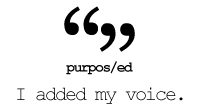 When Sugata Mitra put a computer inside a hole in the wall of the NIIT building in New Delhi, he took the first step in proving beyond a shadow of a doubt, that education was a universal connector craved by people the world over; and that the traditional notion of classroom education was by no means the only way to do it. Now, more than ten years on from the beginning of the HITW experiment, the lessons remain unheeded by many of the people involved in mainstream education. In fact, concepts such as ‘self-directed learning’ and ‘the student voice’ are still scoffed at as Dawn Hallybone was reminded this past week, attending a debate on the National Curriculum review.
When Sugata Mitra put a computer inside a hole in the wall of the NIIT building in New Delhi, he took the first step in proving beyond a shadow of a doubt, that education was a universal connector craved by people the world over; and that the traditional notion of classroom education was by no means the only way to do it. Now, more than ten years on from the beginning of the HITW experiment, the lessons remain unheeded by many of the people involved in mainstream education. In fact, concepts such as ‘self-directed learning’ and ‘the student voice’ are still scoffed at as Dawn Hallybone was reminded this past week, attending a debate on the National Curriculum review.
Are there still that many people connected to education that truly believe, we, the adults know what’s best for the next generation and the one after that? Nick Dennis spoke of the need for us to focus on principles in this debate and at first I disagreed, as principles like ‘purposes’ are rarely universally shared. However, I now see where he was going, and while I appreciated Doug’s question about whose “better” was Nick referring to, I think Nick’s conviction was what was most important. He asked the big questions about what we want education to be and what we are doing for each other as a community, not as definable roles but as human beings.
It is make or break time for humanity and we have a responsibility to draw a line in the sand, admit our mistakes and create a system of education that can begin to undo the harm that we have done to the world. For all the talk over the last twenty years of the ‘global village’, it has not stopped us continuing to destroy our planet, to wage wars and to continue to ignore the inequalities in society. What is the purpose of education? Surely, it is to create unity by helping future generation to recognise the values that humanity share.
Fred Garnett grapsed this when he argued that new (social) media can foster “collaborative, discursive learning, the kind of learning that creates a healthy, open and participative society.” Is this the extension of Mitra’s experiment? Is social media the natural evolution bringing learners to the stream rather than the well? Some of us embrace change, recognising the merits of experimentation and creativity; others fear it, seeing new as dangerous. I’m not suggesting that we should plunge head first into wildly unstructured models of learning but if it were not for people who dared to be creative, who dared to experiment, we would not be able to stare into the vast ocean that is our solar system, or be able to listen to Mozart on a device, so small, it can fit into the palms of our hands.
When Mitra began his experiment he was giving education back to the people and his observations of the children showed happy, creative, collaborative learnings, the sort of learning Tom Barrett hopes his son will continue to experience. I’d intended to say that education is about more than opening doors; it’s about what you do once the door is open. Now I’m asking who needs doors? Why not work together and bust a hole in the wall instead?